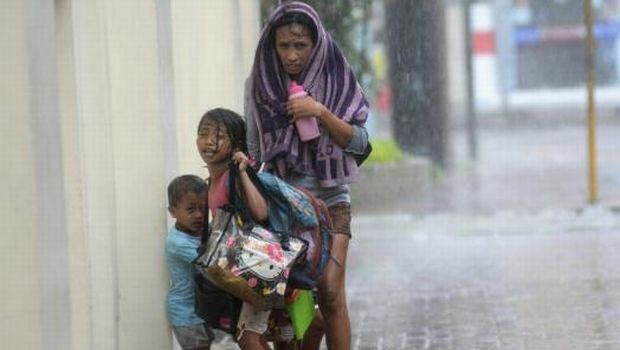The tragic aftermath of Typhoon Haiyan across the Philippines will occupy the world’s attention for some time, as it should. As these words are written, assistance of all kinds is flowing to the disaster-struck areas from all over the world. But as the bodies are buried, the wounded and bereaved comforted, and the shattered homes and businesses rebuilt, people have begun to ask why this happened. Both the questions and the answers may be unsettling.
Inevitably, the debates over the impact of man-made climate change will come to the fore, and not simply as a question of what can be done to mitigate its worst effects, but also as a matter of global justice and wealth distribution.
China and the United States are both the world’s biggest economies, and also the world’s top emitters of carbon dioxide, the gas the majority of the world’s climate scientists say is the primary driver of climate change. Yet it is smaller countries such as the Philippines, already disadvantaged by geography, that lack the means to both prevent and react effectively to the disasters carbon dioxide causes, whether directly or indirectly.
Though it is far from the Philippines, events there also provide food for thought in the Arab world. There have been no been natural disasters of the same magnitude in terms of human losses and material destruction in the Middle East’s recent history, but man-made environmental problems are already taking a serious toll. Severe floods, desertification, land degradation, depletion of water resources and rapid urbanization are already blighting the lives and futures of countless Arabs.
There are many examples—serious floods and looming water shortages in Saudi Arabia and Yemen, the parlous state of the Tigris and Euphrates, tensions between Egypt and Sudan over the Nile, and the role of drought in driving impoverished rural Syrians into the towns and cities, priming them for an explosion.
Arab governments are taking the issues of energy security, water security and food security seriously, but their efforts so far are dwarfed by the scale of the problem, and energy consumption in the Gulf countries remains notoriously excessive.
It is true that billions of dollars are being poured into renewable energy projects in the Gulf, where abundant sunlight offers the prospect of low-carbon water desalination (a notoriously energy-intensive process) and electricity generation, in the face of booming demand for both water and power. This is a good start, but ultimately far more needs to be done—and more quickly—by Arab governments.
This is true not just within the Middle East, but also in joining and contributing to the global debate about climate change and the size and shape of humanity’s footprint on the planet and its fragile life-support systems.
